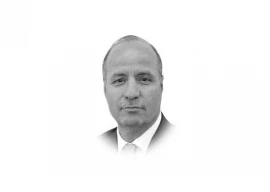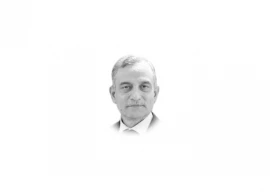
The Harvard University Press’s most recent bold and transformative experiment is the latest endeavour in this long list. Conceived by the imaginative minds of Sheldon Pollock, a professor of South Asian Studies at Columbia University, Sharmila Sen, executive editor-at-large at the Harvard University Press and financially supported by Rohan Murty, son of N R Naryana Murty (co-founder of Infosys) and Sudha Murty (one of India’s bestselling authors), the Harvard University Press, over the next 100 years, is going to publish the 500 greatest books in Indian languages in the native script along with English translation. These books, some of which are millennia-old and have never reached Western audiences, will not only bring forth ancient texts from the sub-continent, but will also open doors for new intellectual adventures in knowledge. The books, which will be in Sanskrit, Prakrit, Pali, Marathi, Sindhi, Hindi, Tamil, Persian, Telugu, Urdu, Punjabi and Bangla, will be the first series ever of their kind. The first few books out of the 500 greatest texts, including works of Sufi saint Bulleh Shah, have already been published. The aim of this grand project is to bring the wealth of knowledge in subcontinental literature, arts and even mathematics and astronomy to not only scholars but also to readers beyond the classrooms and research centres. With appropriate footnotes and tools to comprehend ancient texts, the hope, as Pollock puts it “is that many of these books will be shocks of unfamiliarity”.
Grand experiments such as these often change the course of history, be it the creation of new fields of science, the eradication of a disease or a fundamental new understanding of our past. An undertaking of this magnitude has grand ambitions at the very core. Most of these experiments outlive those who start them, but seeing the project to fruition is hardly the goal. The investment is made to improve human thought and experience.
Pakistan, like any other country, has no shortage of people who have the financial means to undertake bold experiments in creating and sustaining knowledge. Yet, such endeavours are unfortunately rare. We need people who believe in a future that is driven by knowledge and creativity, who invest in intellectual pursuits not as a financial transaction, but because of the sheer pleasure that only a new discovery can provide. It is not to say that building a school in an impoverished part of the country, or providing support to the needy, is somehow not a lofty goal, but equally important is to create a culture where the love of finding out what we do not know is an adequate reason to enter an educational institution.
Demands of immediate dividends or job prospects may be fine as a goal for the masses, but hardly a choice for those who want to change the course of history. Those who pursue knowledge for its purity, and those who support such noble souls bend the arc of time towards a more developed society.
Those whose imagination is illuminated by the nightly sky or the glistening words of years past are often the ones who enlighten the lives of all around them.
Published in The Express Tribune, March 10th, 2015.
Like Opinion & Editorial on Facebook, follow @ETOpEd on Twitter to receive all updates on all our daily pieces.













COMMENTS
Comments are moderated and generally will be posted if they are on-topic and not abusive.
For more information, please see our Comments FAQ